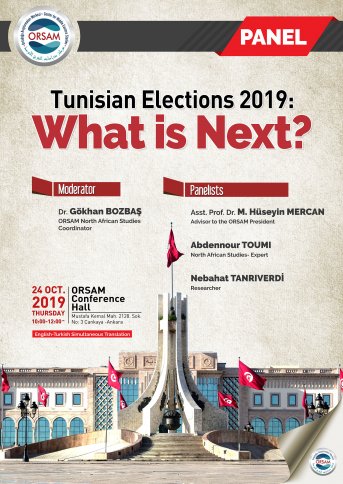
Tunisian Elections 2019: What is Next?
Uprisings that took the entire Middle East and North Africa under its influence erupted in Tunisia in 2011. Ruled by an authoritarian regime until the Arab Spring, Tunisia was the only example of a stable transition to the democracy after the overthrow of the Ben Ali regime.
After the death of former President Essebsi, the presidential election that was planned to be held after the general elections, was put forward and Kayis Said is elected as the new President of Tunisia.
In the parlaimentary elections, Nahda Party received the highest vote and was followed by Nabil Karoui's Party - Heart of Tunisia. In order to establish a government in the Tunisian Parliament, which consists of 217 seats, a coalition should be formed to accommodate different political groups as in 2014.
The 2019 general elections and the presidential elections signal a decline in public participation in Tunisian politics (41% in parliamentary elections) and a serious decline in the votes of prominent political figures during the previous government, suffered heavy losses in the ballot box in 2019. Even Nahda, which won the highest number of votes in the general elections, has lost a remarkable number of votes.
In light of these developments, what awaits Tunisia, the only country in the region that has succeeded in transition to a democratic system without being dragged into chaos after the Arab Spring, together with the new political actors?
24 October 2019, 10:00-12:00
Opening Speech
Prof. Dr. Ahmet UYSAL, ORSAM President
Moderator
Dr. Gökhan BOZBAŞ, ORSAM North African Studies Coordinator
Panelists
Nebahat TANRIVERDI, Researcher
Dr. Muhammed Hüseyin MERCAN, Advisor to the ORSAM President
Abdennour TOUMI,ORSAM North African Studies- Expert
Venue
ORSAM Conference Hall
The panel will be held in Turkish and English. There will be translation from English to Turkish.





